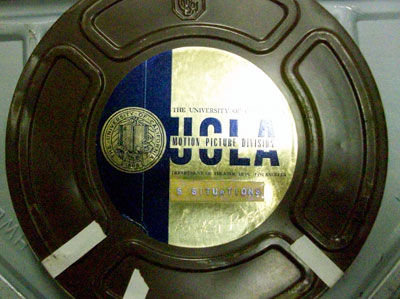
If you're a university that exists in the center of the hub of the entertainment world, then you should be an active member of that community, educating the public on the history and origins of that industry. As, it turns out, the University of California at Los Angeles Film Archive does just that. According to film historian and world renown critique, Leonard Martin, "The Archive is a vital part of the Los Angeles film scene and world-class contributor to the cause of film preservation." And I don't think there's anyone who'd disagree. After all, the UCLA Film & Television Archive is the second largest moving image archive in the United States after the Library of Congress, and the world’s largest university-based media archive.
Which makes a lot of sense due to its close proximity to Hollywood. After all, the two have grown up together, both having been established in Southern California during the 1910s. However, no one thought of studying film as an art until it had matured to a respectable age. The Archive emerged in 1965, first as the Academy of Television Arts and Sciences and UCLA Television Library, and then in 1968 as the Film Archive. Now, of course, you can't turn around without somebody somewhere putting on a show of old films. Some due to sentiment and nostalgia, and others inspired by a keen sense of reverence for the origins of a valued art form. Perhaps a mixture of both is the case at UCLA. Not that there's anything wrong with that at all.
The archive is committed to the collection, restoration and exhibition of moving images. Fortunately for the community, public programs regularly screen at the Billy Wilder Theater at the Hammer Museum in Westwood. But you don't have to live in Southern California to benefit from the collection. The Archive often loans prints to cinematheques and film festivals around the world.
To check out everything the Archive has to offer, including the latest programs scheduled at the Hammer, use the image above as a link to the official website. And if you're in LA, don't let this resource go to waste - visit often and enjoy what the Archive has to offer.
